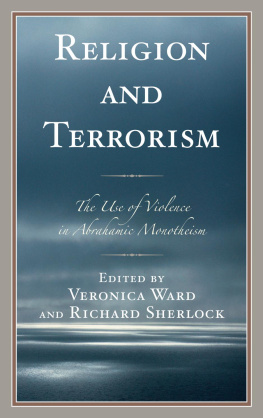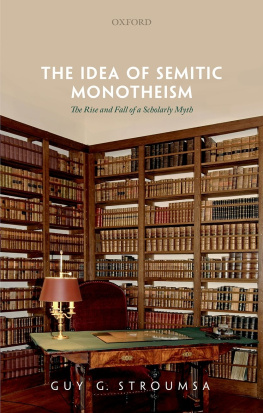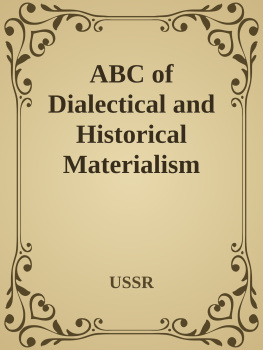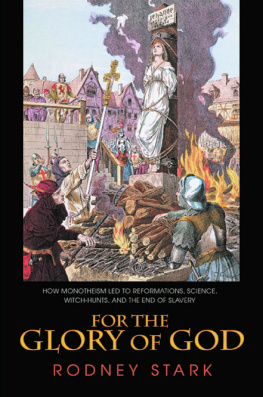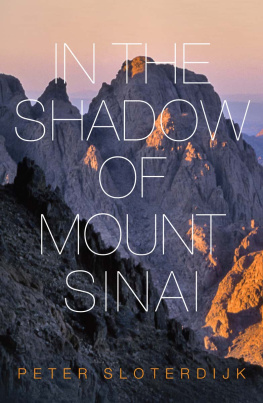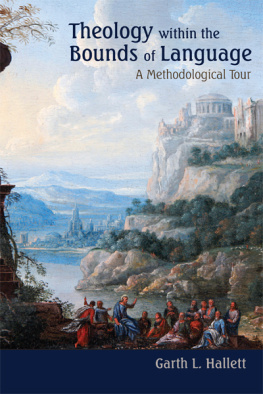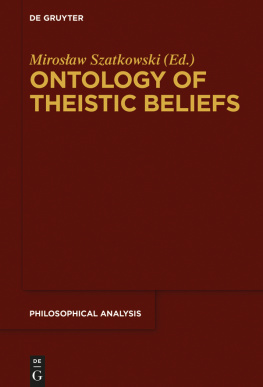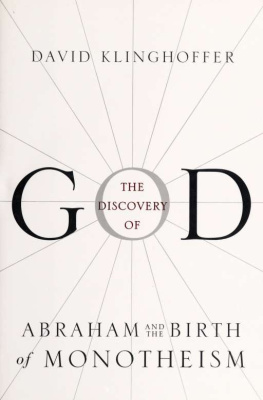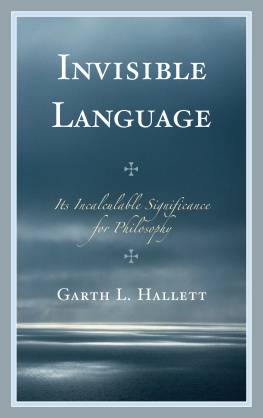The Maturing of Monotheism
Also available from Bloomsbury
Free Will and Epistemology, by Robert Lockie
Evidentialism and the Will to Believe, by Scott F. Aikin
Wittgenstein, Religion and Ethics, edited by Mikel Burley
God, Existence, and Fictional Objects, by John-Mark L. Miravalle

BLOOMSBURY ACADEMIC
Bloomsbury Publishing Plc
50 Bedford Square, London, WC1B 3DP, UK
1385 Broadway, New York, NY 10018, USA
BLOOMSBURY, BLOOMSBURY ACADEMIC and the Diana logo are trademarks of Bloomsbury Publishing Plc
First published in Great Britain 2019
Copyright Garth Hallett, 2019
Garth Hallett has asserted his right under the Copyright, Designs and Patents Act, 1988, to be identified as Author of this work.
Cover design by Eleanor Rose
Cover image: Garden by William W. Huggin, acrylic on canvas William Huggin / Getty Images
All rights reserved. No part of this publication may be reproduced or transmitted in any form or by any means, electronic or mechanical, including photocopying, recording, or any information storage or retrieval system, without prior permission in writing from the publishers.
Bloomsbury Publishing Plc does not have any control over, or responsibility for, any third-party websites referred to or in this book. All internet addresses given in this book were correct at the time of going to press. The author and publisher regret any inconvenience caused if addresses have changed or sites have ceased to exist, but can accept no responsibility for any such changes.
A catalogue record for this book is available from the British Library.
A catalog record for this book is available from the Library of Congress.
ISBN: HB: 978-1-3500-8935-8
ePDF: 978-1-3500-8936-5
eBook: 978-1-3500-8937-2
To find out more about our authors and books visit www.bloomsbury.com and sign up for our newsletters.
Contents
I am curious, however, whether there is anyone who is genuinely indifferent as to whether there is a Godanyone who, whatever his actual belief about the matter, doesnt particularly want either one of the answers to be correct (though of course he might want to know which answer was correct).
Thomas Nagel
In many domains including the religious, humanitys perspectives have steadily broadened and deepened. Within this evolving context, the present work speaks, in ways often new, for the existence of a transcendent being such as the worlds principal monotheistic religions have long worshipped and successive generations have intensively debated and discussed: the supremely powerful, wise, good creator of our ever more astonishing universe. Since most of humanitys major issues interrelate one way or another with the existence of such a deity (here usually referred to, for convenience, by the single name God), the present exposition will be holisticthat is, both broadly cumulative and coherently interconnected, as in a court case where the pieces of evidence not only link item by item with the verdict but are mutually reinforcing.
Differing importantly from its predecessor, A Middle Way to God (Oxford University Press, 2000), for instance in its more ecumenical focus, the breadth of the case it makes, and its consequent organization, the work unfolds as follows. Two preparatory chapters focus first on truth, so basic a human value in theology as elsewhere yet so variously conceived and so radically contested, then on Jewish, Christian, and Muslim monotheism as a plausible claimant to this rightly prized status. The next six chapters respond to major antitheistic challengesmaterialism, determinism, the denial of objective value, the pervasiveness of evil, and predictions of eventual human individual and collective extinction. The final two chapters, shifting back from the negative to the positive, first review traditional metaphysical ways of making a case for monotheism, then, at greater length, adopt and employ a cumulative, more experiential approach. The quick synopses at the start of each chapter, supplementing the present preliminary sketch, provide a somewhat fuller, step-by-step picture of the works dialectical development.
Its historical aspect can be suggested through a comparison. On the one hand,
[a]s the history of science unfolds, science exhibits an increasing knowledge of what is the case. That in turn suggests a thesis about how scientific belief is to be interpreted. It is in significant measure the outcome of genuine real-world influence
Similarly, as the present account unfolds, it too will exhibit, but within still broader horizons, our growing understanding of what is the case and how it should be interpreted. For the story of theism is likewise a human story, but one which is more fully comprehensible if we assume that here, too, human thought and practice are progressively being shaped, at least in part, by what reality is actually like. As science, looking closer and deeper, has gradually shed various myths and misconceptions, so has theism. And, given the strong connections between these two perspectives, the scientific and the theistic, this extensive parallel is not entirely fortuitous.
The human search for transcendent truth is, however, far from being purely intellectual. Thus the philosopher Albert Camuss existentialist perspective invites a complementary comparison:
If I ask myself how to judge that this question is more urgent than that, I reply that one judges by the actions it entails. I have never seen anyone die for the ontological argument. Galileo, who held a scientific truth of great importance, abjured it with the greatest of ease as soon as it endangered his life. In a certain sense he did right. That truth was not worth the stake. Whether the earth or the sun revolves around the other is a matter of profound indifference. To tell the truth, it is a futile question. On the other hand, I see many people die because they judge that life is not worth living. I see others paradoxically getting killed for the ideas or illusions that give them a reason for living (what is called a reason for living is also an excellent reason for dying). I therefore conclude that the meaning of life is the most urgent of questions.
The most urgent of questions for us humans, it might be suggested, but far from the largest or most important question overall. We, here on this little planet of ours, are not the measure of all things. However, this contrast tends to weaken, even evanesce, within a theistically holistic perspective. There, for the personal and the cosmic, for the factual and the evaluative, for the totality of our vast interrelated universe, the saying applies, Light dawns gradually over the whole.
Gradually, and also with great difficulty. So in this present far-reaching endeavor I am grateful for the insightful, eloquent words of many authors (evident already here) and for the comments and suggestions of numerous friends, including Bryce Deline, Mary Domahidy, John Greco, Rosemary Jermann, Jack Marler, Daniel OConnell, Joseph Tetlow, and Brother John of Taiz. My special thanks go to William Rehg for his helpful comments on the whole work; to Rosemary Jermann for her diligent, expert stylistic editing; and to Douglas Marcouiller for his timely encouragement and support at a critical early stage.
Garth L. Hallett
St. Louis, Missouri
Truth
The nature and importance of truth have long been obscured by the complexity of language, so notably exemplified by its truth-terms. Now, however, the shift in Western philosophical reflection, still incomplete, from the truth of thoughts to the truth of written or spoken statements as conceptually primary dictates a decisively different approach to the formulation and cognitive appraisal of theism. Rightly understood, everyday linguistic analogy can supplement and surpass alternativespoetic evocation of the ineffable, mental imagery, models, figurative speech, loose linguistic pragmatismas a normal, effective way of expressing transcendent truth.


